This time, we’re introducing Hakoniwa Monster—a manga perfect for learning how to use practical, considerate keigo with both clients and superiors.
Work Information
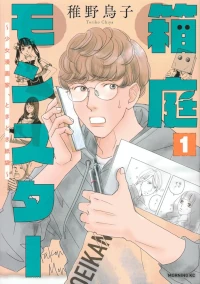
Hakoniwa Monster (箱庭モンスター)
Author: Chiya Toriko
Publisher: KODANSHA
Amount of text: moderate
Challenge level: ★★
Latest volume : Vol.5(Jan.2025 / Completed)
Story overview
Ei Usui, the protagonist, is transferred from the “black company” environment of a weekly magazine’s editorial department to the shojo manga division. At first, he’s thrilled—until he learns that this department is nicknamed the den of monsters within the company. Why? Because shojo manga artists are considered “monsters”!
As Ei scrambles to keep up with his eccentric authors, his unpredictable daily life as a shojo manga editor begins. Full of insider gossip, taboos, and behind-the-scenes realities of the shojo manga industry, this is an office comedy like no other!
The Appeal of This Manga
This is a workplace manga starring a male editor assigned to a shojo manga magazine. If shonen manga has Bakuman, which depicts the editorial floor of Weekly Shonen Jump, then Hakoniwa Monster gives readers a peek into the equally unique, quirky world of shojo manga. The story is packed with outrageous creators and their antics, yet it feels surprisingly authentic thanks to its author—a veteran who has written shojo manga for 35 years. With a touch of exaggeration for comedic effect, it offers an entertaining yet realistic backstage look at the industry.
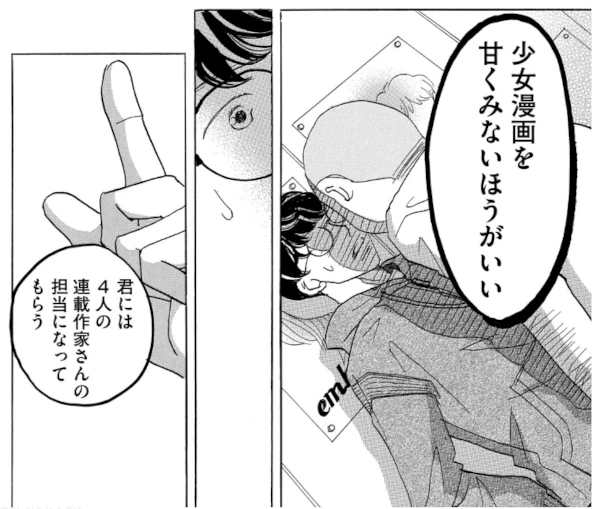
Why this manga is suitable for learning Japanese
This manga is not only entertaining but also highly recommended for Japanese learners for several reasons.
Rich examples of polite speech used to show consideration
As an editor, Ei’s job is to support his authors and avoid offending them. The manga provides many examples of conversations where speakers carefully choose polite phrasing to maintain good relationships.
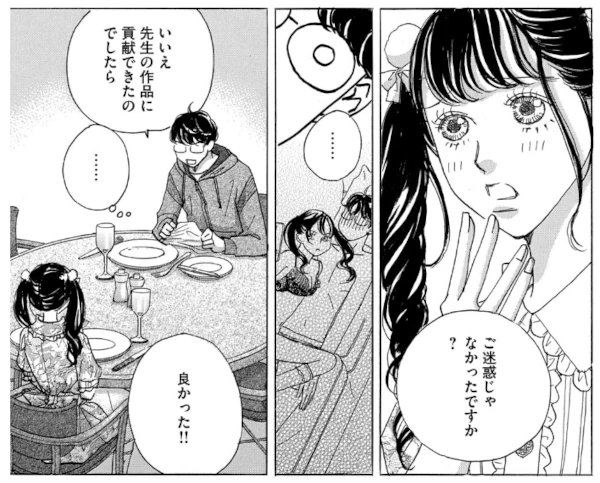
Plenty of dialogues with superiors
When Ei speaks with his bosses within the editorial department, he naturally uses keigo (polite speech). These exchanges offer great insight into practical, moderately formal Japanese as it appears in business settings—neither overly stiff nor too casual.
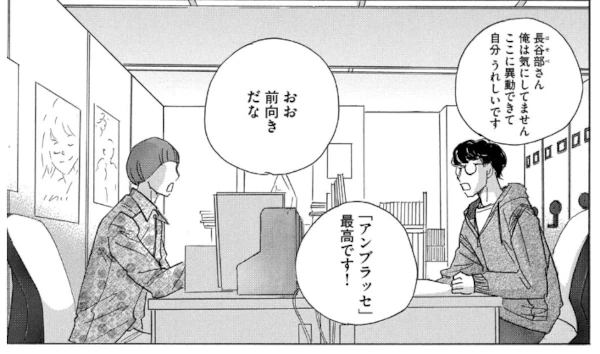
Phrase Spotlight
Chance, Luck, and Social Frustration: A Deep Dive into Japan’s Oya Gacha Slang担当ガチャ(○○ガチャ)
In the manga we’re looking at, the author uses the phrase “tantō gacha”—a joke about whether their assigned editor will turn out to be a jackpot or a total dud. The idea is simple: is this editor going to be talented and inspiring, or completely useless and disappointing? This playful term comes from “oya gacha,” a slang phrase that has gained attention in recent years.
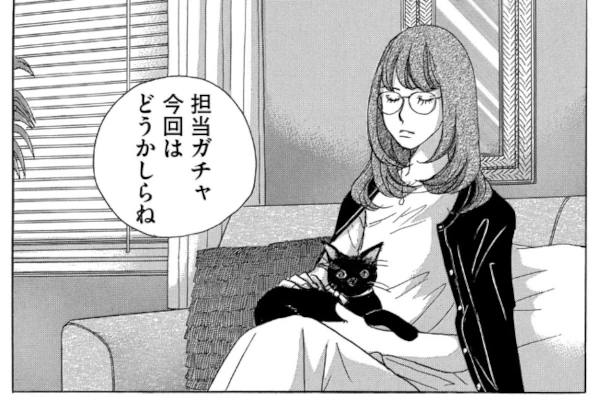
What Does “Oya Gacha” Mean?
Oya gacha (literally, “parent gacha” - 親ガチャ) is a popular slang expression among young people in Japan. It compares being born into a particular family to pulling characters in a smartphone game’s gacha—a lottery-style system where results are completely random, like drawing lots:
・Being born to wealthy or supportive parents = a rare lucky pull (atari)
・Being born to poor or difficult parents = a dud pull (hazure)
It’s a blunt way of saying that your family background is pure luck, not something you choose.
Why Did This Phrase Appear?
Japan’s declining birthrate, widening income gap, and unequal access to quality education have left many young people feeling that their future is predetermined by the family they’re born into. No matter how hard they study or work, they see social mobility shrinking—making it feel almost impossible to “break out of” an unlucky start in life.
Social media has amplified this sense of hopelessness. Platforms constantly showcase others who were “born on third base”—with wealth, connections, or elite schooling—while those without such advantages struggle just to stay afloat. This glaring contrast fuels the belief that life’s outcomes are more about luck of birth than personal effort, giving rise to the blunt expression oya gacha.
The Rise of “~Gacha” Expressions
From oya gacha, similar phrases quickly appeared in everyday talk:
・rinjin gacha(隣人ガチャ) – “Did you luck out with your neighbors?”
・haizoku gacha(配属ガチャ) – “Did you get placed in a good department or stuck with a bad team?”
・jōshi gacha(上司ガチャ) – “Did you pull a good boss or a bad one?”
・sensei gacha(先生ガチャ) – “Did you get a lucky draw for your homeroom teacher?”
Conversation Examples
・「今回の配属ガチャ、SSRかも!」
“I think I hit the jackpot with this team assignment—super rare pull!”
・「上司ガチャでハズレ引いたわ…」
“I totally pulled a dud of a boss this time…”
While oya gacha can spark serious social debate, these spinoffs are usually used playfully, to describe situations as if they were random luck.
Why This Word Matters for Learners
・It shows how Japanese reflects youth culture and social issues.
・You’ll understand slang you see in manga, anime, or on social media.
・You can recognize playful “~gacha” wordplay in conversation.
Knowing oya gacha helps you see how modern Japanese speakers mix humor with serious topics—and how language evolves to describe feelings of unfairness, luck, and chance.
A Little Warning
Japanese rap may be tricky!
In one scene, Ei freestyles a rap to grab the attention of an author. Because rap relies on rhyming and wordplay, the Japanese here differs from standard conversational language, which may pose an extra challenge for learners.
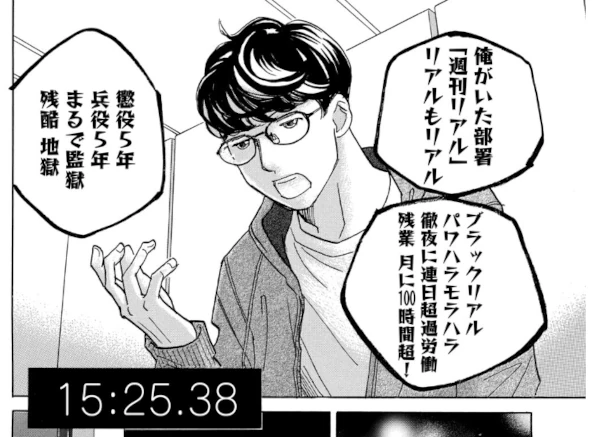
Work Information

Hakoniwa Monster (箱庭モンスター)
Author: Chiya Toriko
Publisher: KODANSHA
Amount of text: moderate
Challenge level: ★★
Latest volume : Vol.5(Jan.2025 / Completed)
Here’s a safe and convenient way to purchase Japanese manga.
This Blog’s ConceptIn this blog, we are introducing manga that are not only highly captivating but also ideal for Japanese language learners. Studying Japanese through manga is both fun and effective. Manga allows you to understand the subtleties of keigo (honorifics), teineigo (polite speech), and casual conversation in Japanese. We hope you find works that match your interests and use them to enhance your Japanese learning journey.